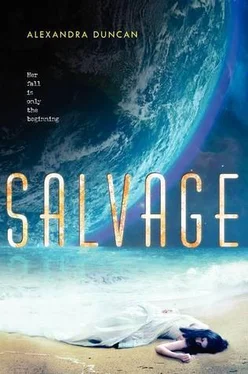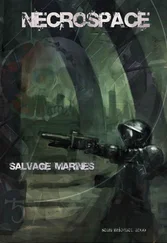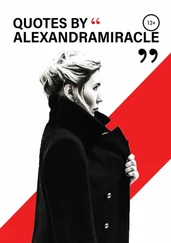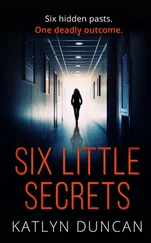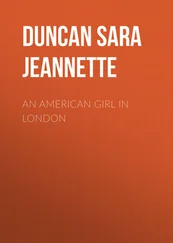Rushil’s street is near empty, but the closer we come to the hill, the more the streets tick with people. Packs of girls lean against one another, laughing, high heels clacking on the pavement as they walk. Boys Rushil’s age stand in circles under the streetlights, drinking and feigning jabs at each other. Couples stroll by, arm in arm. Rushil reaches back to grab my hand.
“You know this used to be a slum?” he says. “And then they built the railyards and it turned into mostly warehouses. But now—”
Even from far off, the buildings on the hill hum with voices and muffled music and the buzz of solar generators. We trek deeper into the Salt. It isn’t like the south end of the city, all jammed with hot, bright signs trying to draw you in. Here, you have to know where you want to go. Each building is a little boxed glance into another world. A tapri full of clinking cups and waiters edging around the crowded tables. A blue-lit room packed with dancing bodies writhing together under a constant beat. A man glancing up from a wrought-iron basin brimming full with dark water. Dozens of shadows milling behind the gauzy curtains of an upstairs loft.
The street sweepers here have all been scooped up and modded at some point. One trundles by carapaced in a fake turtle shell. Another looks as though it’s been hennaed. Another blares out tinny music as it charges across the street. We ring up and up, closer to the top of the Salt. Every now and then we catch narrow glimpses of the city and its tight-woven carpet of lights between the buildings on the hill’s outer rim.
Two thirds of the way up, Rushil stops. “Here.” He points up at an old warehouse some three stories above us, hanging halfway out over the hill and the lev train tracks below. Thick metal struts anchor the dangling edge to the raw earth of the hill below. A murmur of distant voices and music filters down to us from the lighted windows.
“Here?” I say.
Rushil cups his hands to his mouth and shouts up. “Hey, Zarine! Zarine!”
Someone—a man, not Zarine—leans his head out the window.
“Hey!” Rushil waves his arm. “Let us up.”
A low clank-clank-clank starts above us, and slowly, a platform lowers into view, suspended by metal cables. It touches down in a puff of dust beside us. Rushil hops on, and I follow.
“How do we . . . ,” I start to ask, but Rushil grabs a hand crank built into the side of the platform and turns it in a slow, smooth circle. The platform shudders and lifts from the ground.
“Zarine and some friends put in drywall and plumbing and all. It’s apartments now,” Rushil says, looking up at the base of the warehouse as he rotates the winch. We rise level with building, and the noise builds to a steady hum of voices and music. As Rushil locks the platform in place and secures us to the side of the building, the door flies open, letting out a wave of lamplight and high, twanging music.
“Rushil, you made it!” A tall, curvy woman with a wild toss of hair leans across the gap between the platform and the doorframe to hug Rushil. A black dress hugs her waist, and round brass earrings as big as fists dangle from her ears. Everything about her seems scaled for giants, her hair, her eyes, her legs. Behind her, a kitchen separates us from a warmer room where a small crowd lounges on floor pillows, couches, and round, shell-like chairs, talking and sipping beer or tea in glasses. A handsome, dark-skinned young man with a sitar balances on the back of the nearest couch, cradling the neck of his instrument and picking its strings absentmindedly as he talks to the couple across from him. Ankur, I realize.
“Hey, Zarine.” Rushil hugs her back.
“You must be the one Rushil was talking about.” She takes my arm and helps me across the gap. “Ava, right? Who rescued that little girl?”
Her words knock me shy and off-balance. Does she mean Miyole? But that wasn’t rescuing. “Oh, no, I . . . I’m not . . .” I try to say, but the rush of voices in the neighboring room drowns me out. Is that who I am? I look at Rushil. Is that how he sees me?
“You want a beer?” Zarine shouts. “Or some tea?”
“Tea,” I say.
“Go on, help yourself to a cutting.” Zarine waves a bangled arm at a clutter of cups and pitchers covering the blocky table in the center of the kitchen. “Rushil?”
“I’m good, thanks.” He throws a look at me. “I was telling Ava you had some tubing for us. . . .”
Zarine sighs and feigns hurt. “I swear, you only want me for my spare parts. You have to promise to stay and at least have some tea after.”
Rushil grins. “I promise.”
Zarine flashes her teeth in another smile. “Come on, I’ve got that tubing downstairs in the utility room.”
Rushil leans close. “You want to come with us?”
A burst of laughter breaks out from the sitting room behind me. I look over my shoulder. Young men and women, all my age or a little older, sit mingled together, easy with one another. I’ve never been in a place like this.
I turn back to Rushil. “I think I’ll stay here.”
“I’ll be back in a minute.” He squeezes my arm briefly and follows Zarine around the crowd of people and out another door. The room suddenly feels dimmer without her, as if a lamp has gone out.
I pour myself a glass of tea and sit cross-legged on the outskirts of the sitting room crowd. Everyone around me is dropped deep in conversation, talking on music and who’s setting up a gallery show and who’s been off planetside and how long, only none of it’s anyone I know.
“Hey, Ava.” Ankur drops down next to me, sitar in hand. “Fancy meeting you here. How do you know Zarine?”
“I don’t.” I take a sip of tea. “Rushil brought me.”
Ankur gestures to the doorway Rushil and Zarine disappeared through. “I lost my muse. You want to sing with me?”
I nearly choke.
“I don’t know.” I swallow, buying time. “I’m not from here. I don’t think I know any of your songs.”
“Not even ‘Melt It Down’?”
I shake my head.
“Or ‘Burn, Sita, Burn’?”
I shake my head again.
“‘Droughtsick’? Everyone knows ‘Droughtsick.’”
I shake my head a third time.
Ankur picks at the sitar’s strings. “Well, why don’t you sing something from where you come from, and I’ll try to play along?”
A nervous current zings through me. Panic. “I can’t.”
“Come on.” Ankur smiles his perfect smile. “Nobody here’s going to bite. I’ll tell them not to trap it for their pages, huh?”
“It isn’t that.” I rest my empty teacup on the floor.
“You one of those shy girls never does anything but listen in on other people talking?” Ankur teases.
“No,” I say, even though he’s probably right. “It’s . . . I’m not supposed to.”
“Not supposed to?” Ankur says.
“Sing.” It feels strange to say, especially here, now.
Ankur stares at me as though I’ve said I’m not supposed to breathe or grow fingernails. “What, is it going to send us hurling ourselves into the trainway? Is it that bad?”
I open my mouth to answer, but then I realize I don’t really know what will happen if I sing. Something bad, something to catch the ears of bad spirits, or so the story of Mikim and the corsairs would have it. But now, I don’t know. Miyole was right. Now that I know more of how the universe works, Mikim’s story makes some little sense. And besides, all the verses in the Word about what befalls a woman in the Earth’s grip, those were only part true. I may be tarnished, but I’m still whole. So maybe nothing will happen if I sing. Maybe no harm will grow from it at all.
Читать дальше
